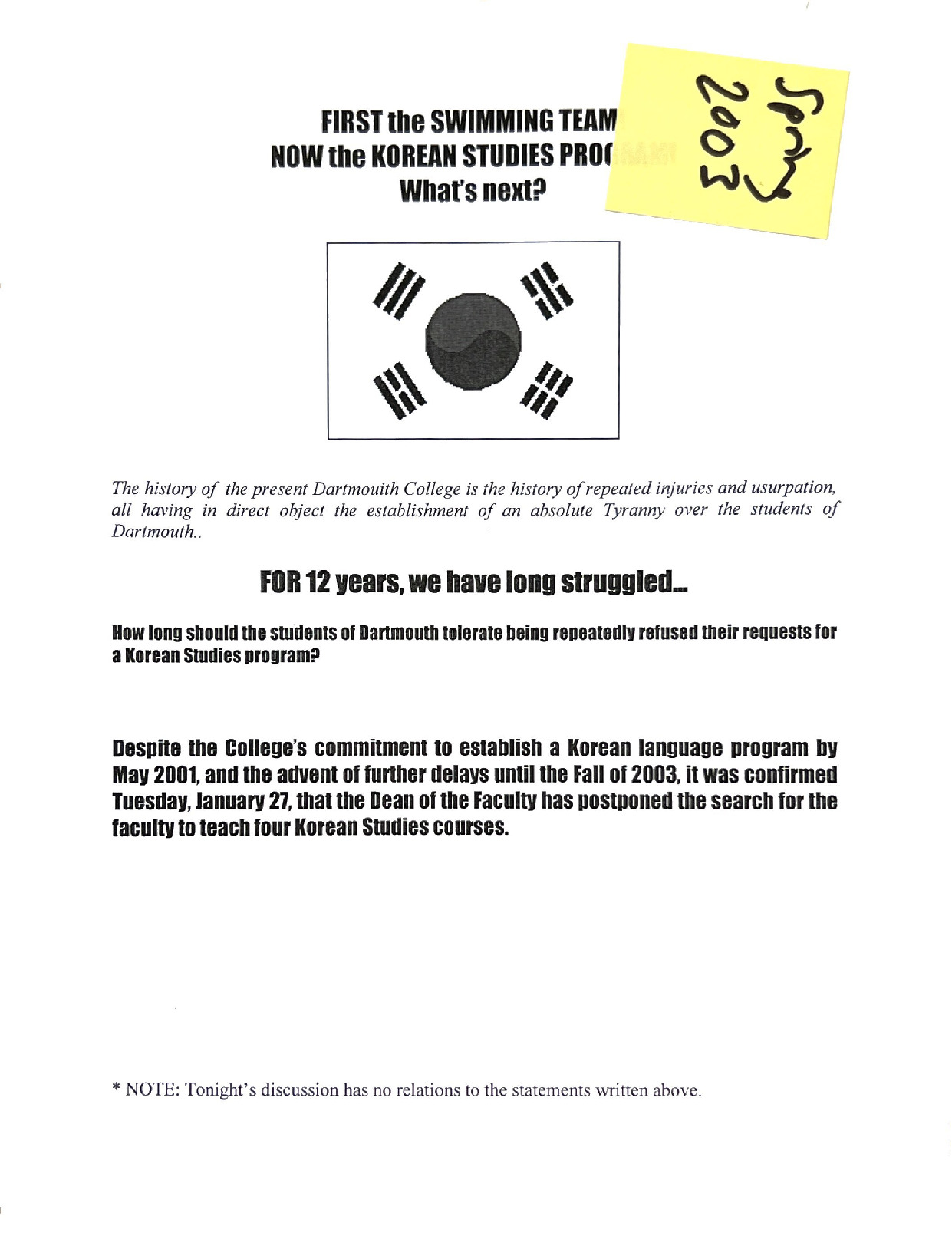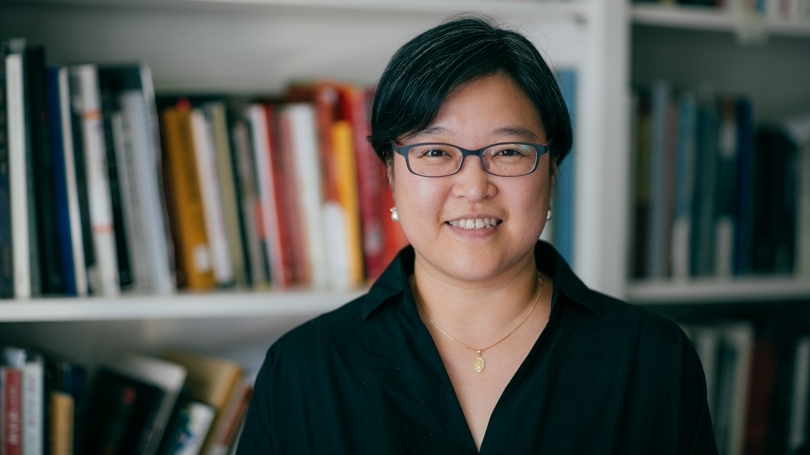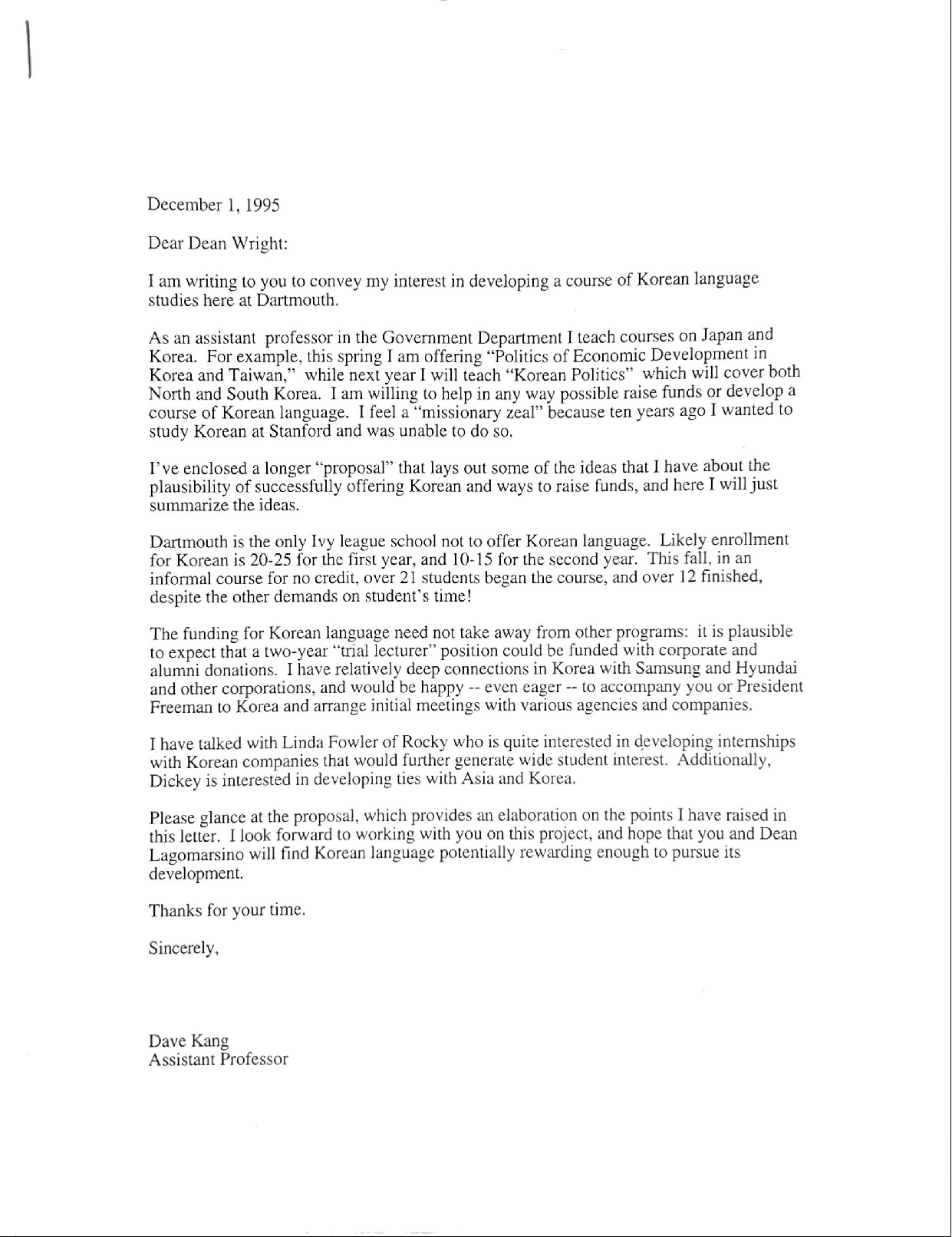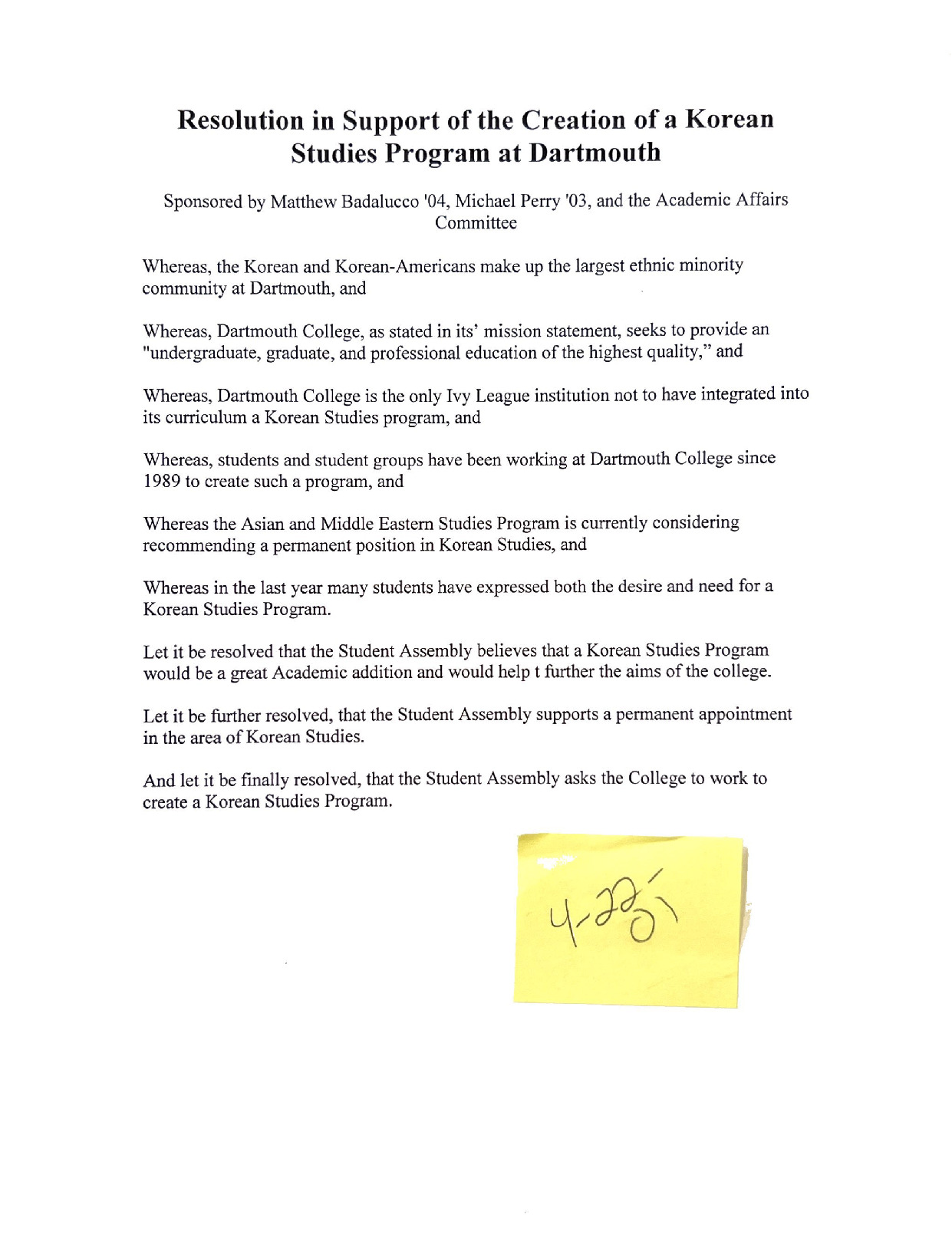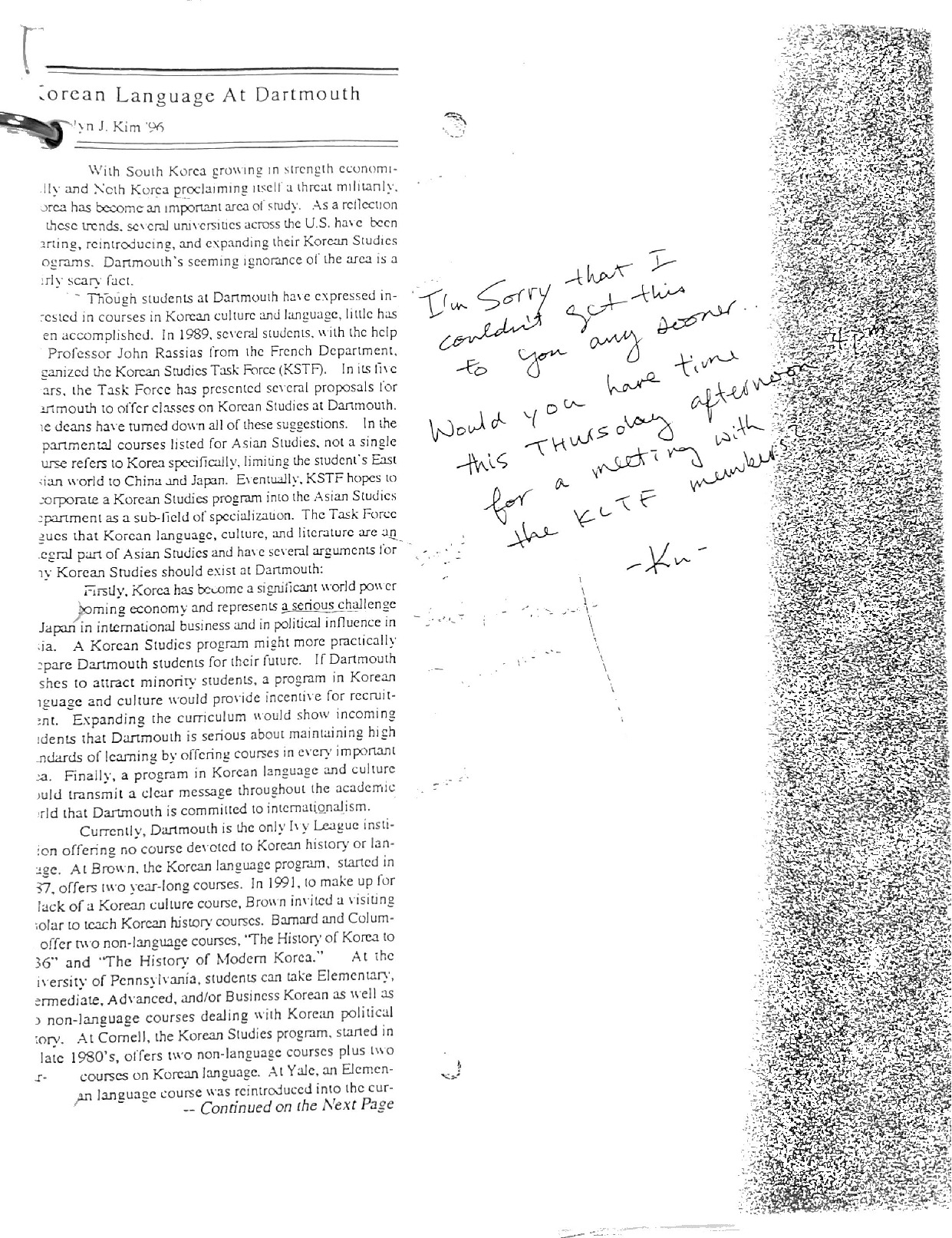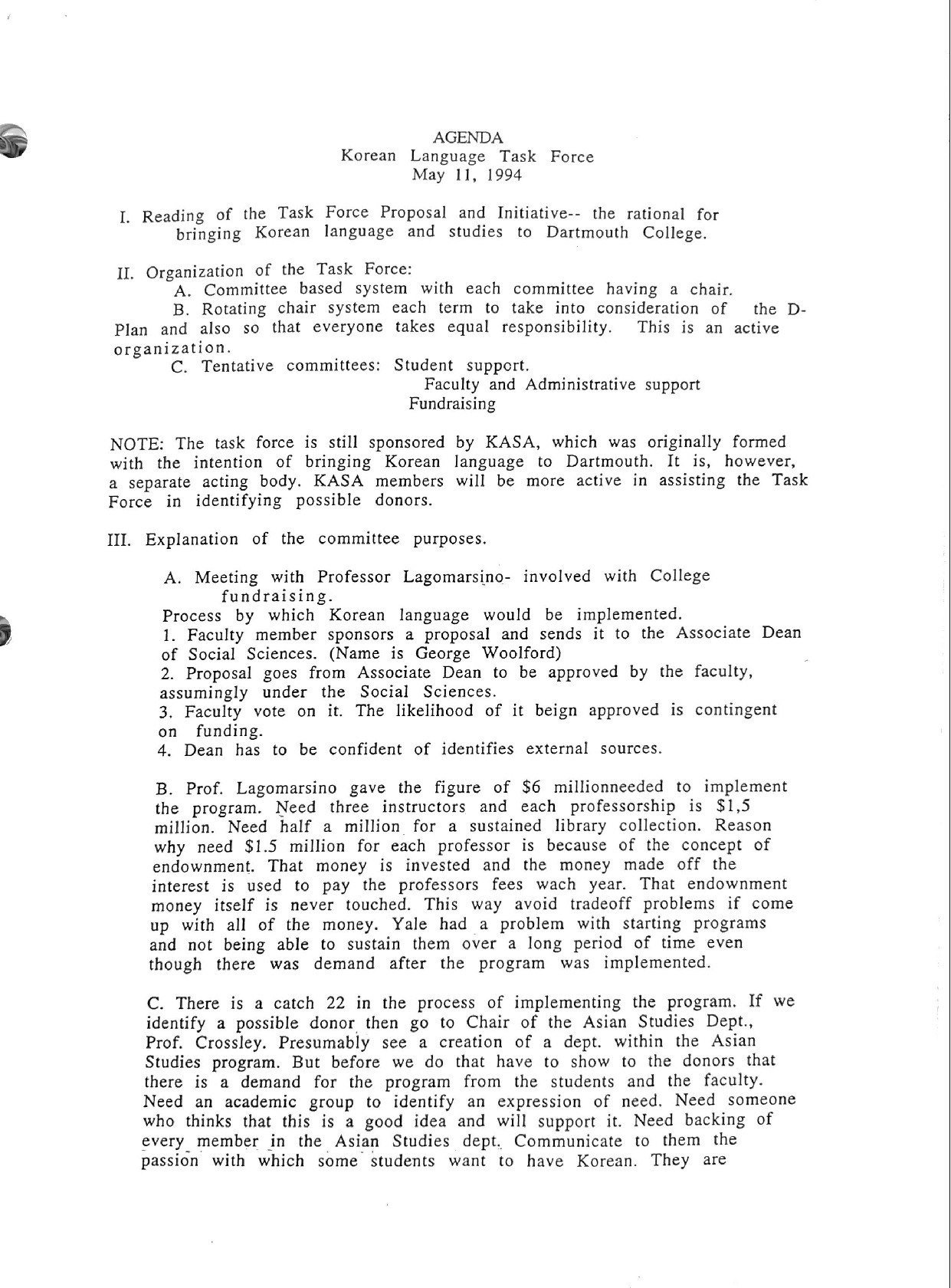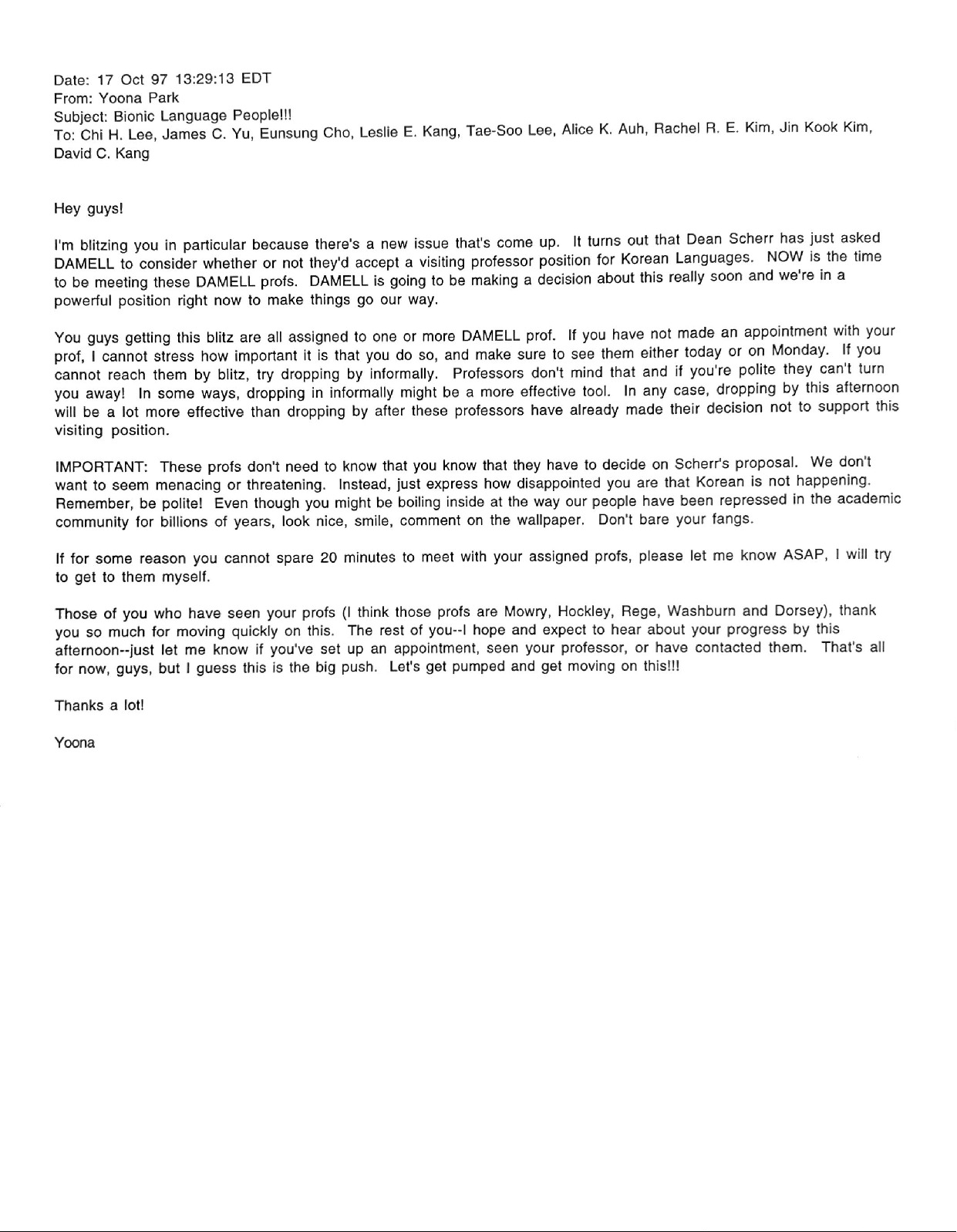Korean Studies and Language Activism
While Dartmouth has offered languages such as Chinese since the 60’s, other languages from Asia were not yet been included. Over two decades after firmly institutionalizing Chinese as a language program, the College established Arabic language studies in 1987, and two years later subsequently added Japanese language courses in the fall of 1989. In that same year, the Korean Studies Task Force was created by students seeking to include Korean studies classes in the course catalog, and the Korean Language Task Force was created another two years later in 1991. What is not entirely known is whether the push for Korean language classes at Dartmouth was fought alongside Arabic and Japanese initiatives or if the creation of the programs spurred Korean students to advocate for Korean language. Nevertheless, the story of Dartmouth’s failure to institutionalize Korean studies in any capacity is an ideal example of administrative responses (or lack thereof) to the pleas of students, advocacy groups, and even professors for Asian and Asian American studies.
"And let it be further resolved, that the Student Assembly supports a permanent appointment in the area of Korean Studies."
Resolution in Support of the Creation of a Korean Studies Program at Dartmouth by the Student Assembly
Timeline of the Korean Studies/Language Task Forces
- The Korean Studies Task Force (KSTF) is established in 1989 in association with the Korean American Students Association (KASA) in order to advocate for Korean-related classes at Dartmouth. The group is advised by Professor David Kang.
- The Korean Language Task Force (KLTF) is created in 1991 specifically for the establishment of languages, also in association with KASA.
- In the fall of 1992, KASA offers student-taught Korean language courses at both beginner and advanced levels.
- In October of 1997, KASA executives President James C. Yu ‘99 and Vice President Yoona Park ‘99 send numerous emails to members to urge their professors to support the proposed visiting professor position for Korean languages.
- During the same time period, the Student Assembly passes a resolution to affirm support of a Korean language program.
- Professor Kang makes the appeal that the Korean government, corporations, and alumni would feasibly be able to fund a language program. He has connections to Hyundai and Samsung.
- “In the words of one executive, the idea of establishing internships or other relationships with Dartmouth was ‘not only possible, but probable.’”
- Between 2003 and 2004, the College hires Suk-Young Kim as a Korean Studies Professor. However, she leaves after only one year.
- In 2005, the hiring of Chris Hanscom marks the first hire in the Asian language/literature section at the College.
- Between 2007-08, two large grants, one from the Korea Foundation, creates two tenure track positions.
- Professor Hanscom leaves in 2010, and Korean studies is left to be maintained by new professors Sunglim Kim and Soyoung Suh. These two professors currently teach at the College and explore themes related to Korean culture, society, and history. Additionally, Professor Sunglim Kim is the faculty director of the Yonsei University exchange.
- The 2015 split of the Department of Asian and Middle Eastern Literatures and Languages (DAMELL) into the ASCL and MES programs puts Korean studies and language on hold as a priority.
- Korean studies are meant to be reviewed in 2019, but the review is put off for a year. The following year, the COVID-19 pandemic postpones the review indefinitely.
- Faculty suggest that the most likely step forward for Korean language courses is to hire a senior lecturer, not a tenure-track professor.
- No Korean studies or language program exists at Dartmouth today.
"The situation right now is not that Dartmouth doesn't want a Korean program. The problem is that certain departments are having problems with how the whole proposal is being organized [...] The fact remains, however, that Dartmouth is the only Ivy without a Korean program."
Yoona Park, in an email dated October 15th, 1997
The now defunct Korean task forces highlight several still-existing administrative trends that have prevented Asian American studies at Dartmouth, including a failure to hire and maintain faculty that would be conducive to Korean studies and a general administrative disinterest in this field of study.

